 Petzlover
Petzlover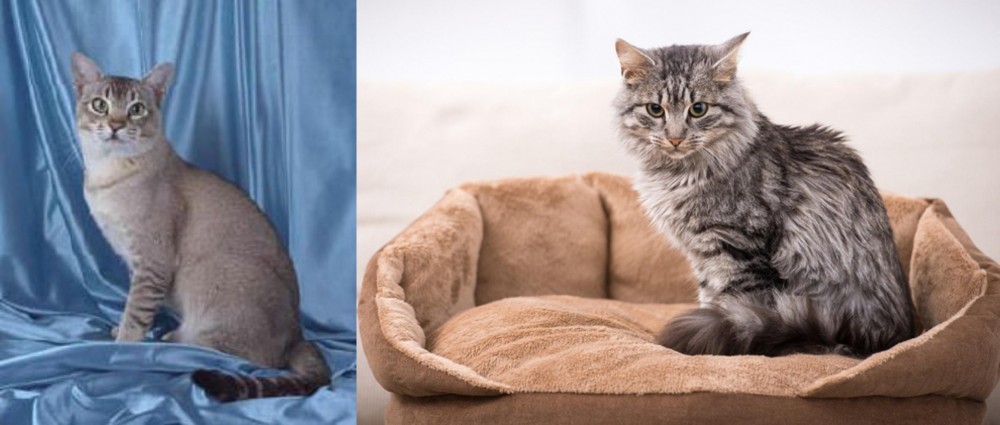 Both American Keuda and Domestic Mediumhair are originated from United States. Both American Keuda and Domestic Mediumhair are having almost same weight. American Keuda may live 5 years less than Domestic Mediumhair. Both American Keuda and Domestic Mediumhair has same litter size. American Keuda requires Low Maintenance. But Domestic Mediumhair requires Moderate Maintenance
Both American Keuda and Domestic Mediumhair are originated from United States. Both American Keuda and Domestic Mediumhair are having almost same weight. American Keuda may live 5 years less than Domestic Mediumhair. Both American Keuda and Domestic Mediumhair has same litter size. American Keuda requires Low Maintenance. But Domestic Mediumhair requires Moderate Maintenance
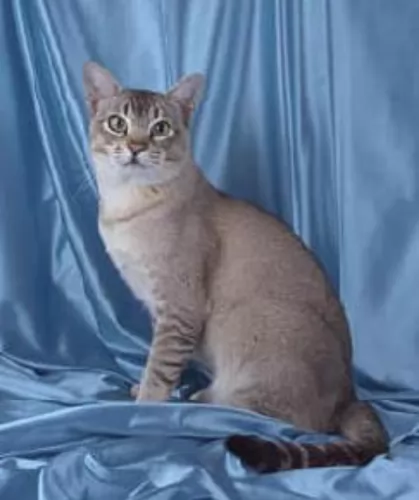 It is thought that the cat was brought to America by the Spanish to keep the rat population down.
It is thought that the cat was brought to America by the Spanish to keep the rat population down.
The name KEUDA stands for Kitten Evaluation Under Direct Assessment which is actually the name of a program that was running in Texas, Oklahoma and New Mexico and was for investigating the kinds of cats that survived as barn cats.
Today the Keuda isn’t registered and it’s not a well-known cat either, being looked upon as being similar to the Egyptian Mau breed as it shares some physical similarities with the Mau.
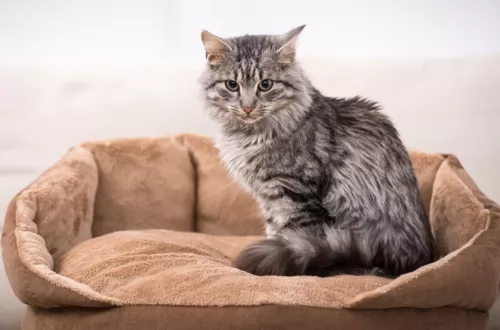 It is unclear as to whether the Domestic Mediumhair comes from Egypt, Europe or the USA.
It is unclear as to whether the Domestic Mediumhair comes from Egypt, Europe or the USA.
It is a mixed breed cat that no one can be sure how it's going to look. It is why they are often referred to as mutts and you’ll likely find them in animal shelters.
It was thought they arrived in America with the Pilgrims, who brought them aboard the ships to take care of the rodent population. Mixed breeding between many generations of cats brought about the Domestic Medium Hair.
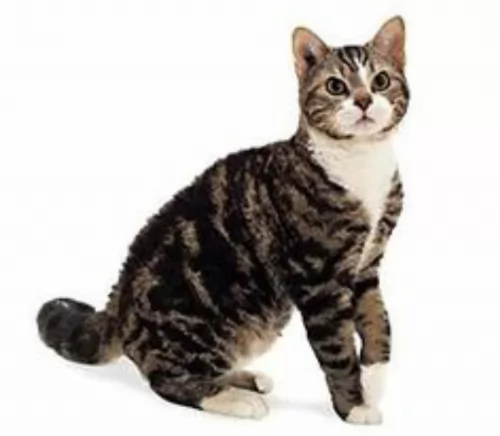 You can’t really pin-point what the American Keuda looks like as it looks a lot like the Maus but it can also look like a Siamese cat or even others.
You can’t really pin-point what the American Keuda looks like as it looks a lot like the Maus but it can also look like a Siamese cat or even others.
It is a medium-sized cat and can weigh up to 5 or 6kg while being very lithe and athletic. The head of the cat is medium-sized, the ears medium-large, the eyes almond-shaped, and the tail is slightly tapered.
An unusual aspect with this cat is its belly flap – loose skin that flaps at each elbow. The head is wedge-shaped, it has almond-shaped eyes, large ears and the fur is soft and silky and in a variety of patterns as well as solid colors. The coat is short to medium in length and there is no undercoat.
American Keudas are just your regular cat in personality - active, adaptable, inquisitive, and intelligent while being strong and agile.
They are also adaptable and social, getting along well with children as well as other pets in the home. It is also quite unusual in that it likes playing with water. They are also playful and love running, jumping and climbing and indoors it will want a climbing cat tree.
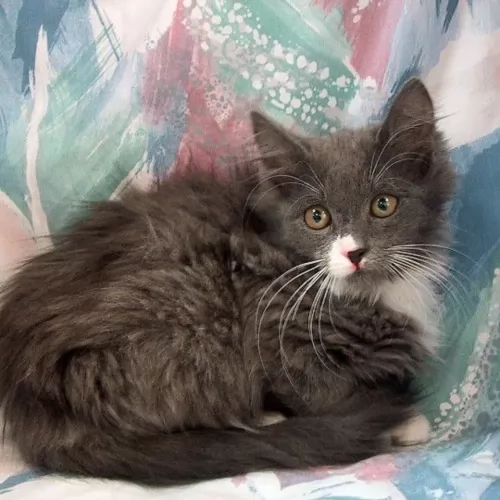 This is a medium-sized cat that weighs in the region of 3 – 6kg. They stand at about 30cm in height but there is no set standard with these cats and their looks and temperaments can vary.
This is a medium-sized cat that weighs in the region of 3 – 6kg. They stand at about 30cm in height but there is no set standard with these cats and their looks and temperaments can vary.
It's a medium built cat, not too thick-set or not too slight. The medium-length coat is thick and double-coated and can be in every color and pattern, including tabby and tortoiseshell.
The eyes can be different shades and the ears large or small too while the tail can also vary in length and bushiness.
Because the Domestic Medium Hair is of mixed ancestry, their temperaments can vary. Some are quiet and docile while other can be very energetic and have a lot to say. Most of them are loving, loyal cats that get on well with childre and other pes in the house. Some are also more independent than others, but a lot can deped on the way you bring your cat up.
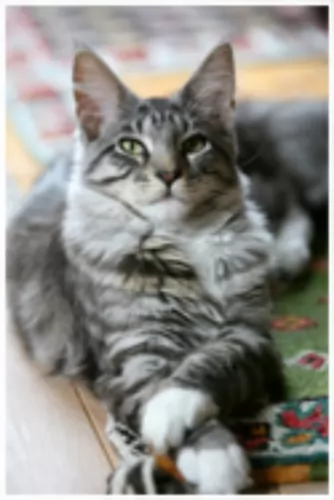 The beauty of American Keuda cats is that they are no-fuss cats and they are energetic, amicable, social, and playful and they make wonderful companions.
The beauty of American Keuda cats is that they are no-fuss cats and they are energetic, amicable, social, and playful and they make wonderful companions.
They are also fond of water and can even strike up a friendship with your dog. By bringing a Keuda into your home you can rely on a steady, loving friendship with your feline friend.
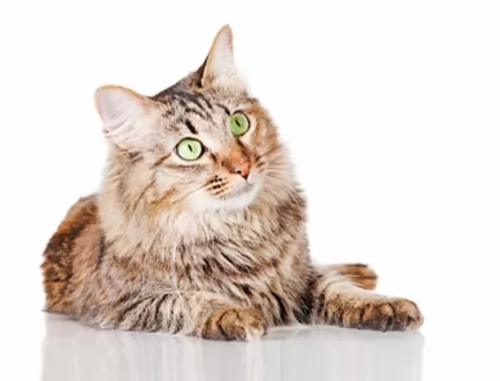 Domestic Medium Hairs come in so many different shapes, sizes and personalities. You’ll also find lots of colors, patterns and personalities with this cat as much depends on the cat’s ancestry.
Domestic Medium Hairs come in so many different shapes, sizes and personalities. You’ll also find lots of colors, patterns and personalities with this cat as much depends on the cat’s ancestry.
Even when you choose a kitten, you can’t really know what you’re going to get – large or small, lively or quiet, independent or needy – its what makes owning a Domestic Mediumhair so fascinating.
One thing every one of them has in common is that they love their human family and they deserve to all receive unconditional care and companionship.
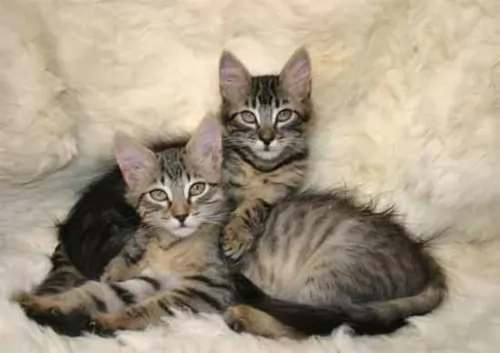 Thes cats enjoy good health and live to be 15 years of age or older even. You just have to watch out for him as they have no undercoats and it’s not a cat to do well in the cold.
Thes cats enjoy good health and live to be 15 years of age or older even. You just have to watch out for him as they have no undercoats and it’s not a cat to do well in the cold.
Whenever you buy a cat for the first time, try and find out about vaccines and previous conditions that might require special treatment.
Healthy kittens and cats are always alert and energetic with shiny coats and clear eyes.
Dental disease is quite common in cats, and it is always a good idea to have your pet’s teeth checked by your vet. Signs of pain with dental problems can include lethargy, pawing at the mouth, facial swelling, and reduced appetite. Get your cat immediately to the vet if you suspect problems with his teeth.
Neutering and spaying are imperative if you don’t want your pet to have kittens. It’s a simple operation for your pet and it comes with many health benefits for your cat. You don’t want your female cat having kittens as there are just already so many stray cats in shelters. Spaying and neutering mellows a cat too, makes them less prone to wandering, spraying, and fighting.
Make sure you have your American Keuda vaccinated against the many cat diseases that there are. Vaccinations are available against feline infectious enteritis or feline parvovirus, cat flu and feline leukemia virus, a disease that damages the cat’s immune system. Kittens require their first vaccine at around 8 weeks of age.
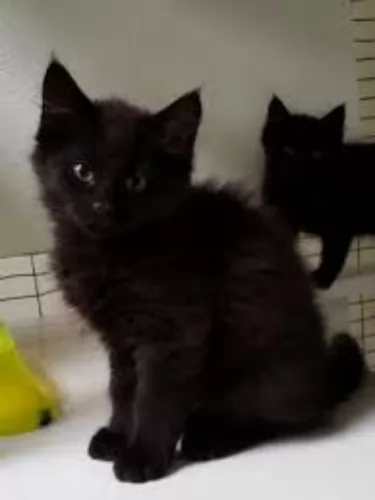 With the Domestic medium hair cat having a mixed ancestry, they are cats that don’t easily succumb to illness.
With the Domestic medium hair cat having a mixed ancestry, they are cats that don’t easily succumb to illness.
You’ll find that the health issues that are common to this cat are typically common to all cat breeds. Some of these typical illnesses are diabetes, kidney disease, obesity, dental problems and hypertrophic cardiomyopathy, a heart disease.
All these illnesses can shorten your cat's life. Gut health is of critical importance so be sure to provide your cat with a top-quality diet.
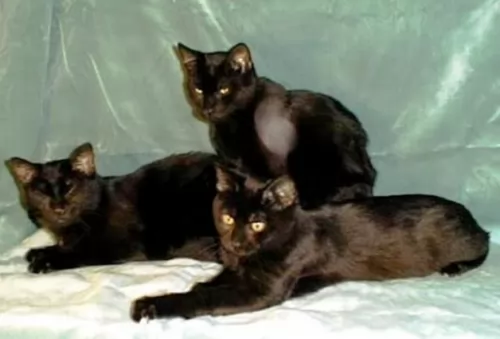 Every cat needs to be fed a complete, balanced high-in-protein food. There are heaps of different brands of cat food on the market - wet and dry. Always follow the manufacturer’s instructions and recommended amounts. If in any doubt about what to feed your cat, speak to your vet. Every cat needs a constant supply of fresh, cool water.
Every cat needs to be fed a complete, balanced high-in-protein food. There are heaps of different brands of cat food on the market - wet and dry. Always follow the manufacturer’s instructions and recommended amounts. If in any doubt about what to feed your cat, speak to your vet. Every cat needs a constant supply of fresh, cool water.
Both young and older cats love to play so ensure you provide your cat with stimulating toys as well as things such as climbing trees and a scratching post. Cats enjoy a high-up place where they can feel safe and view their surroundings from a height.
Cats spend many hours a day sleeping and you need to provide your cat with a warm, dry, comfortable, quiet place to rest. There are many cat beds available, but if you don’t have one, a cardboard box with one side removed and a soft cushion or blanket will do.
Invest in a litter box for your cat to do his business in and keep it in a safe, quiet place where your cat can ‘toilet’ in peace and quiet. These should be placed away from the food and water bowls. Make sure to keep a small plastic rake close by and rake up the cat droppings regularly to ensure the litter tray is nice and clean.
Your American Keuda is a short-haired cat but you want to brush the fur gently at least once a week. Grooming also provides you and your cat with some valuable bonding time.
Provide your cat with a collar to show everyone that he is yours. Also, have your cat microchipped – a tiny chip that carries your pet’s unique ID number and which is inserted safely and gently under the cat's skin.
Have your cat treated and free from parasites such as ticks, fleas, and worms. Speak to your vet about this.
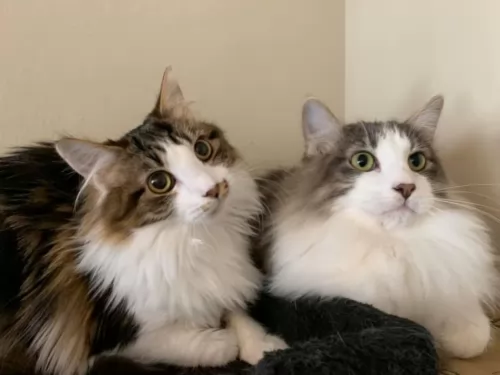 The Domestic Medium Hair has a thick, double coat, and to avoid hairballs and matting, he will need to be brushed at least once a week. Set aside this brushing time to examine your cat’s eyes, the inside of his ears, inside his mouth for bad teeth, to check the length of his claws and to feel for unusual new lumps.
The Domestic Medium Hair has a thick, double coat, and to avoid hairballs and matting, he will need to be brushed at least once a week. Set aside this brushing time to examine your cat’s eyes, the inside of his ears, inside his mouth for bad teeth, to check the length of his claws and to feel for unusual new lumps.
Your cat's diet is as important as life itself. Your cat is a carnivore and should be fed meat. He won’t do well on carbs. Speak to your vet if you’re unsure about how to feed your cat.
Meanwhile, there are some excellent commercially manufactured cat foods on the market and if you choose the best ones with meat at the top of the ingredients list, you can be doing the right thing.
Kittens start with 4 meals a day while the older cat will do well on 2 meals a day. It is most important to feed your kitten the very best food – the correct diet – because their bones, brain, coat and energy all depend on this for the rest of their lives.
Remember too that there are cat foods that cater to the different seasons of your cats life. A kitten, young adult, energetic breed, pregnant cat, a cat with disease, and a senior cat will all have a choice of foods made by the top brand cat food manufacturers. Each food caters specifically for the cat’s unique needs.
Keep your cat's vaccines and de-worming up to date. Parasites left unchecked can make your cat sick.
You can provide your cat with all the best food, toys, comfy bedding and medical care you like, but if you don’t provide him with love and attention, it will all be in vain.